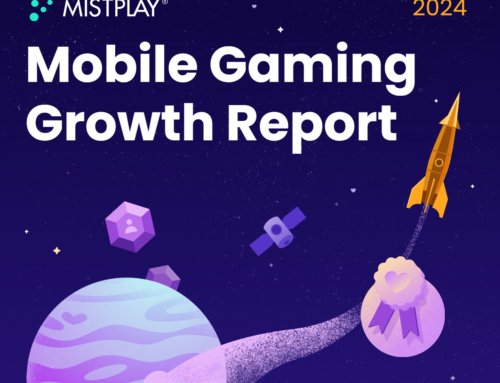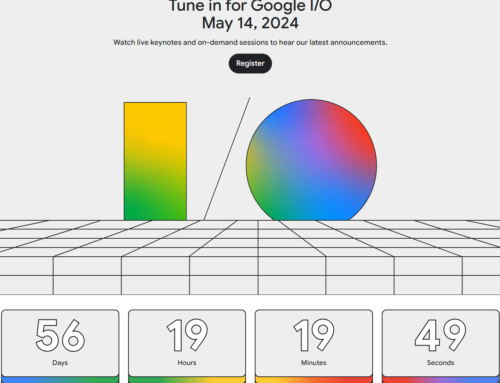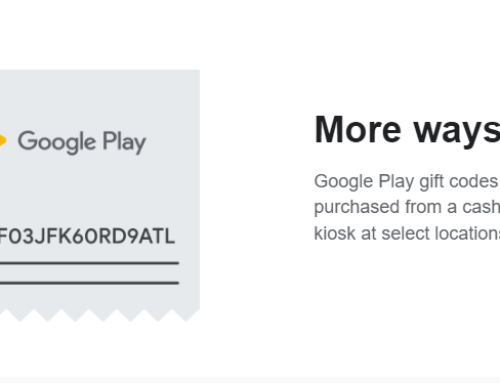[dropcap]O[/dropcap]ne of the most popular questions I receive from developers is “When should I publish my app on Google Play?”. My answer for most non-premium apps is: YESTERDAY! You should submit your app to Google Play and have it published as soon as you have a working copy (following a private BETA) with the following slogan in mind: Release Often, Release Early. [pullquote-right]”Release Often, Release Early”[/pullquote-right]Premium apps can plan to publish an app whenever they consider the highest interest for that type of app is the highest (i.e. right before a holiday for themed games, generally in the fall, …), but non-premium apps should be released as soon as they are ready.
From a reviewer’s point-of-view I classify apps/games in two categories: premium and non-premium:
- Premium apps are not “paid” apps, I just refer this way to those that were developed by a big name company, as it is the case of Angry Birds for instance, OR apps/games that include a brilliant idea, have an extraordinary UI (graphics + usability) or simply make anyone trying them for the first time say WOW. Here’s a few examples: TA Little Red Riding Hood, Air Control 2, Logic Dots, MailWise (do a search on Google Play if you want to see how they look).
- Non-premium apps are the rest of them, those that account for 99.9% of the apps/games listed in Google Play.
What’s the best time and day to contact app review sites?
This is the other frequent question I’m being asked. There are lots of articles focusing on the urgency of submitting app review requests right before releasing an app, with a news embargo not to publish about it sooner. This is an excellent strategy, however only for premium apps. The idea is that if an app gets lots of downloads in the first hours/days from its release, it might get into a top in the appstore and reach PR heaven. But for non-premium sites that’s a sure way (i.e. sending news embargo) to be ignored by app review sites. Why? Well, let’s consider the IFs involved here:
- IF your email reaches the inbox of the reviewer, he (might as well be a she or in-between) must be lured into clicking on it and opening that particular email out of the hundreds he already has
- IF he opens the email, he must quickly find something that grabs the attention to actually read more than 2 seconds
- IF there’s something news-worthy, he must perform an action (most of the times click on a link) that in the most optimistic case would result in him deciding to install and review the app
And actually the ifs can continue (if the app installs without errors, if the reviewer actually likes it, …) but you get the point, there’s a low probability of being covered in the first place. Email delivery rates are around 95+%, open rates are around 20%, click-through rates are at 3% and action conversion rates depend on the type of landing page. So if you contact app review sites with a normal app realistically [highlight]you have around 3-5% chances of getting the app reviewed[/highlight]. Every extra step you add will reduce the probability, so add a “news embargo” and you reduce the probability even more.
Statistics for app review requests received via AndroidB
My suggestion with contacting app review sites is to do it in the day of the week when it’s the least amount of competition, after you launch your app. I ran some statistics on the app submissions I received for the past almost 4 months and with a total of 1200+ responses I’d say the results are pretty relevant. Before you look over the data, just note that the time used is GMT which is 8 hours ahead of Pacific Time.
Below is a graph that shows which days these apps were submitted on:
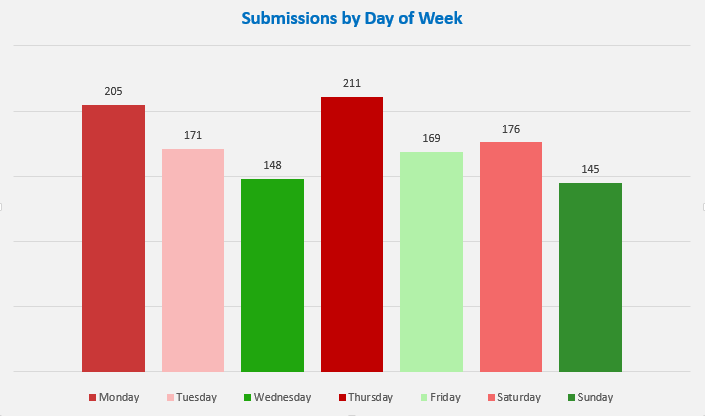
App submissions by day of the week.
As you can see, the least amount of submissions I received were on Wednesdays and Sundays. While Sunday makes sense, it’s strange to see that in the middle of the week devs didn’t submit as many apps as in the rest of the days. The general consensus is to send emails on Tuesdays and Thursdays, but my recommendation is to [highlight]pick Wednesday or Sunday[/highlight]. Again, you’re targeting the least amount of competition, not the best open/click through rates.
The graphic below shows the time of day when app submissions were received (again, times are GMT aka Pacific time +8):
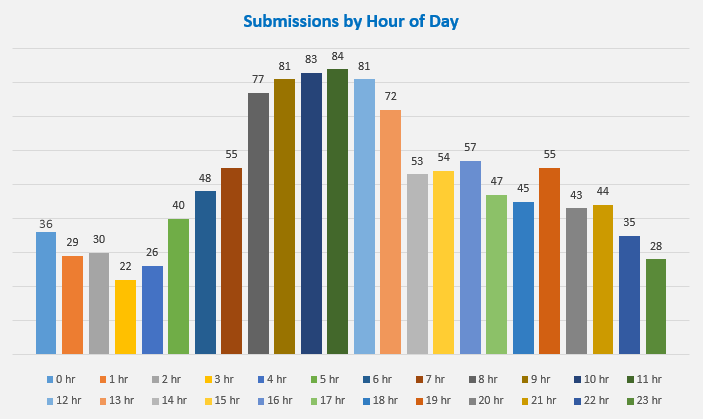
App submissions by hour of day.
All times were rounded by subtraction, so if an user submitted the app a 7:59 am, that counts as hour 7. This doesn’t affect the set of data since my recommendation is to submit your app to review sites between 2pm-6pm GMT (which means 6am – 10am Pacific time).
Merging all data you should either submit your app on [highlight]Wednesday between 6 – 10 am (Pacific time) or even Sunday between those times[highlight]. If you don’t use an email service and send emails manually, you have a benefit if you’re not in the US since your afternoon is their morning :).
But my recommendation is not to beat yourself too hard and stay all night up just to deliver an app review request. Do it when it’s convenient for you too, just try to avoid the “crowded” days. It’s more important having a strategy on how to contact the app review sites, than when. The strategy should be very simple, send app review requests right after your app is first released but also do a follow-up on those sites that didn’t cover your app 2 weeks later – this way you can test the best time to submit yourself.
Tips for contacting app review sites
Here are some tips for contacting app review sites that help increase the probability of having your app reviewed:
- Sincerity Test. First thing you should test is to see if your app is crappy. Some developers are blinded by the effort they’ve put in their app (or just too excited to have released a first app) that they don’t realize how awful the app is. So do a simple test, share your app with close friends and ask for their true opinion (don’t share it with your mother as she’ll love anything you do). You can do this simply by creating a private beta program on Google Play and inviting your friends. If the general response is not good, then don’t bother with the current app and go on to create another. Very few developers get it right from the first time, so release often.
- Have a Website. Using an @yahoo or @gmail email address to contact app review sites is probably not the best idea. First of all, that increases the chances of getting caught by spam filters (especially if you use @mail.ru emails for instance). Second, it looks unprofessional. It takes only a little effort to create a website for all your apps and games. As a bonus you also get to use your fancy.name@fancydomain.com email address. If you’re not the web developer type, just head on to Themeforest and get a responsive theme (preferably WordPress) for your apps (dozens beautiful ones available) with a small $40-$50 investment.
- Captivating Subject. Most reviewers will receive dozens (at least) emails daily. So if your email doesn’t stand out by using a captivating subject, chances are high your email will end up in trash. So try to find the perfect subject under 60 characters (email clients display only a limited number of characters based on the current view, so under 60 increases the chances of it not being trimmed). If it fits you can also use a special Unicode character as email clients are able to render those correctly. Here are some of the ones that get recognized by email clients:
■ □ ▢ ▣ ▤ ▥ ▦ ▧ ▨ ▩ ▪ ▫ ▬ ▭ ▮ ▯ ▰ ▱ ▲ △ ▴ ▵ ▶ ▷ ▸ ▹ ► ▻ ▼ ▽ ▾ ▿ ◀ ◁ ◂ ◃ ◄ ◅ ◆ ◇ ◈ ◉ ◊ ○ ◌ ◍ ◎ ● ◐ ◑ ◒ ◓ ◔ ◕ ◖ ◗ ◘ ◙ ◚ ◛ ◜ ◝ ◞ ◟ ◠ ◡ ◢ ◣ ◤ ◥ ◦ ◧ ◨ ◩ ◪ ◫ ◬ ◭ ◮ ◯ ✁ ✂ ✃ ✄ ✆ ✇ ✈ ✉ ✌ ✍ ✎ ✏ ✐ ✑ ✒ ✓ ✔ ✕ ✖ ✗ ✘ ✙ ✚ ✛ ✜ ✝ ✞ ✟ ✠ ✡ ✢ ✣ ✤ ✥ ✦ ✧ ✩ ✪ ✫ ✬ ✭ ✮ ✯ ✰ ✱ ✲ ✳ ✴ ✵ ✶ ✷ ✸ ✹ ✺ ✻ ✼ ✽ ✾ ✿ ❀ ❁ ❂ ❃ ❄ ❅ ❆ ❇ ❈ ❉ ❊ ❋ ❍ ❏ ❐ ❑ ❒ ❖ ❘ ❙ ❚ ❛ ❜ ❝ ❞ ❡ ❢ ❣ ❤ ❥ ❦ ❧ ❶ ❷ ❸ ❹ ❺ ❻ ❼ ❽ ❾ ❿ ➀ ➁ ➂ ➃ ➄ ➅ ➆ ➇ ➈ ➉ ➊ ➋ ➌ ➍ ➎ ➏ ➐ ➑ ➒ ➓ ➘ ➙ ➚ ➛ ➜ ➝ ➞ ➟ ➠ ➡ ➢ ➣ ➤ ➥ ➦ ➧ ➨ ➩ ➪ ➫ ➬ ➭ ➮ ➯ ➲ ➳ ➴ ➵ ➶ ➷ ➸ ➹ ➺ ➻ ➼ ➽ ➾ ☀ ☁ ☂ ☃ ☄ ★ ☆ ☇ ☈ ☉ ☊ ☋ ☌ ☍ ☎ ☏ ☐ ☑ ☒ ☓ ☖ ☗ ☚ ☛ ☜ ☝ ☞ ☟ ☠ ☡ ☢ ☣ ☤ ☥ ☦ ☧ ☨ ☩ ☪ ☫ ☬ ☭ ☮ ☯ ☰ ☱ ☲ ☳ ☴ ☵ ☶ ☷ ☸ ☹ ☺ ☻ ☼ ☽ ☾ ☿ ♀ ♁ ♂ ♃ ♄ ♅ ♆ ♇ ♈ ♉ ♊ ♋ ♌ ♍ ♎ ♏ ♐ ♑ ♒ ♓ ♔ ♕ ♖ ♗ ♘ ♙ ♚ ♛ ♜ ♝ ♞ ♟ ♠ ♡ ♢ ♣ ♤ ♥ ♦ ♧ ♨ ♩ ♪ ♫ ♬ ♭ ♮ ♯ ♰ ♱
- Start Friendly. If you know the name of the editor be sure to include a “Hi NAME” at the beginning. The first paragraph has to be very concise too, it should include one link to your main action page as well (either your website or if not directly Google Play). Try to condense what the unique selling point of your app is in that first paragraph. If the app already received some praise from known sources mention that in there too (i.e. “praised by TheNextWeb”…).
- No PR lingo. Don’t include a standard press release format for the rest of the email. Provide a summary of your app/game, followed by a list of key features (4-5 maximum) and end this with links to a video demo, website, Google Play and your most popular social media link (if it’s under 100 followers don’t include anything).
- Provide a free version. If your app is paid don’t expect reviewers to purchase it. Make sure you either release a version that’s fully playable for a certain time (or number of times), or an unlock code if you’ve developed something like this. If your app has in-app purchases, at least mention in the email that you could unlock all items for the reviewer if they contact you (just be sure you have the possibility to do this from a technical point of view). Lastly, if by no means you can provide a free version to them, mention you’ll refund their purchase if they are willing to pay and try it.
- Localized Emails. While most editors will know English, if the website they write for is in a different language it increases the chances of getting a review if you contact them in that language. Noticed a reviewer is from your own country? That’s an advantage, you can mention it even in the subject (i.e. “… developed by a Russian team”).
- No Attachments. Contrary to some advices, don’t include attachments to your email. That increases the chances of getting caught by spam filters, not to mention reduces the delivery rate (especially if you attach high-res images). If you want to provide screenshots create a gallery on your site and include the link to that. Ideally should be on the Press Kit section of your site. What, no Press Kit section? Well…
- Don’t over do it. If you have multiple apps, for the love of all that’s holy don’t submit them all in the same day to the same sites, one every few days is enough. I treat multiple submissions at once as spam.
Conclusion
Don’t expect miracles since with more than 1.2 million apps now available in Google Play there are slim chances for you to develop the next big hit. Instead I believe on incremental value, which means not to limit yourself to a single app/game. Make a plan on what to do once your app is submitted to Google Play and after that move on to the next app, then the next app, then the next… you get the point. Income from your apps will gradually increase as you develop your portfolio, so even if you don’t create the next Flappy Bird you’ll at least have sustainable revenue.
To make (most) developers that submit an app review request smile I also ask a question on the submission form: Do you like Justin Bieber? I know, I know, the response is obvious as you can see in the graphic below:

Do you like Justin Bieber?
The “Others” category is actually devs that didn’t resume to a simple yes/no answer, instead they wrote full sentences. My favorite response was “I’m from Japan so who is she?”. The IP matched the country, so not a troll. He does have a vibe, doesn’t she?

